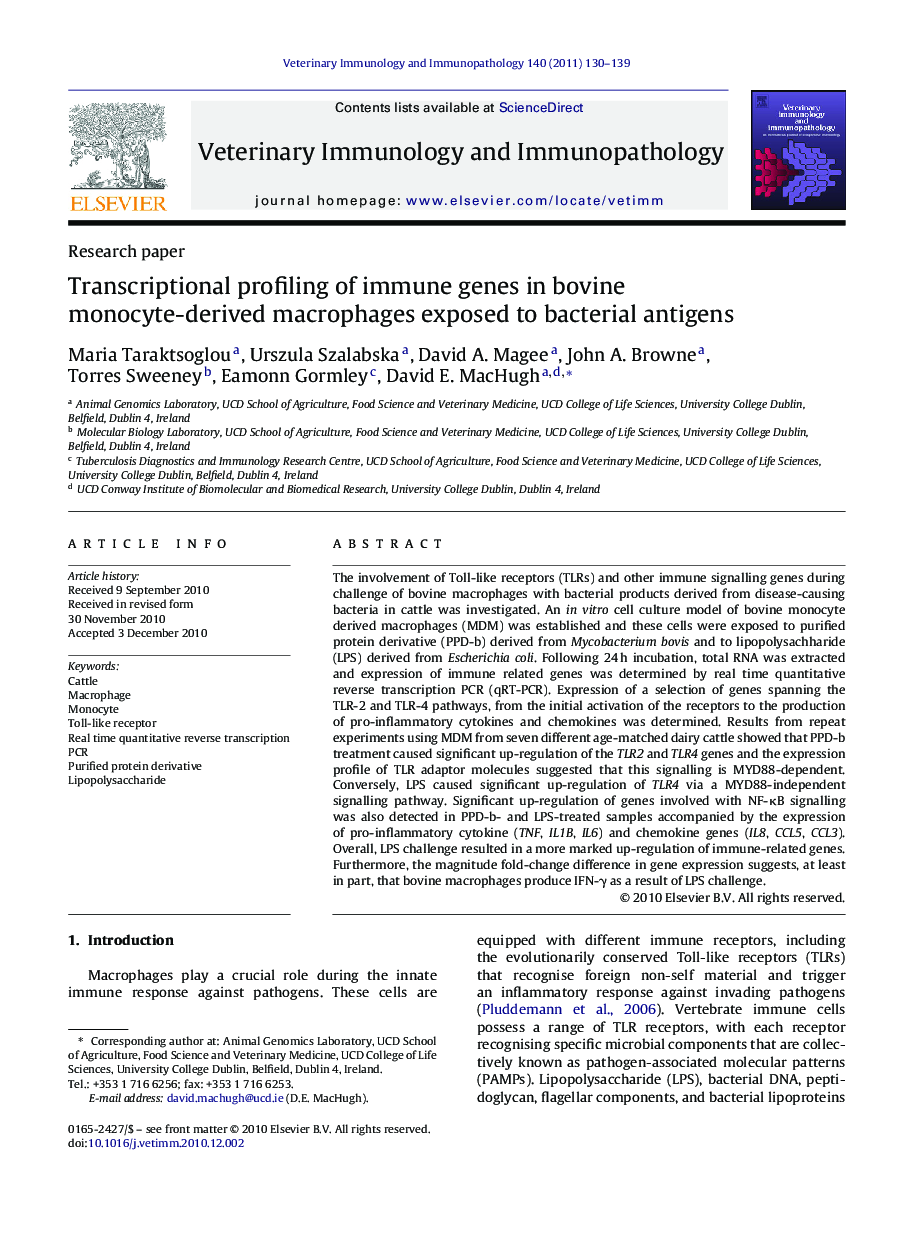| Article ID | Journal | Published Year | Pages | File Type |
|---|---|---|---|---|
| 2462257 | Veterinary Immunology and Immunopathology | 2011 | 10 Pages |
The involvement of Toll-like receptors (TLRs) and other immune signalling genes during challenge of bovine macrophages with bacterial products derived from disease-causing bacteria in cattle was investigated. An in vitro cell culture model of bovine monocyte derived macrophages (MDM) was established and these cells were exposed to purified protein derivative (PPD-b) derived from Mycobacterium bovis and to lipopolysachharide (LPS) derived from Escherichia coli. Following 24 h incubation, total RNA was extracted and expression of immune related genes was determined by real time quantitative reverse transcription PCR (qRT-PCR). Expression of a selection of genes spanning the TLR-2 and TLR-4 pathways, from the initial activation of the receptors to the production of pro-inflammatory cytokines and chemokines was determined. Results from repeat experiments using MDM from seven different age-matched dairy cattle showed that PPD-b treatment caused significant up-regulation of the TLR2 and TLR4 genes and the expression profile of TLR adaptor molecules suggested that this signalling is MYD88-dependent. Conversely, LPS caused significant up-regulation of TLR4 via a MYD88-independent signalling pathway. Significant up-regulation of genes involved with NF-κB signalling was also detected in PPD-b- and LPS-treated samples accompanied by the expression of pro-inflammatory cytokine (TNF, IL1B, IL6) and chemokine genes (IL8, CCL5, CCL3). Overall, LPS challenge resulted in a more marked up-regulation of immune-related genes. Furthermore, the magnitude fold-change difference in gene expression suggests, at least in part, that bovine macrophages produce IFN-γ as a result of LPS challenge.
